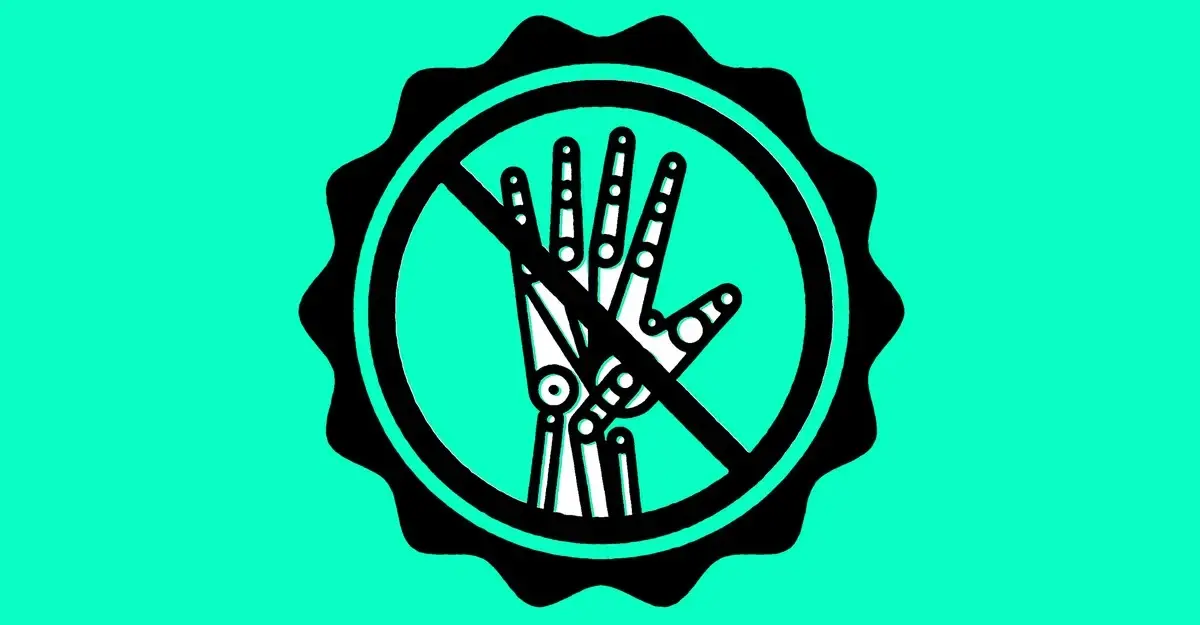As soon as Apple announced its plans to inject generative AI into the iPhone, it was as good as official: The technology is now all but unavoidable. Large language models will soon lurk on most of the world’s smartphones, generating images and text in messaging and email apps. AI has already colonized web search, appearing in Google and Bing. OpenAI, the $80 billion start-up that has partnered with Apple and Microsoft, feels ubiquitous; the auto-generated products of its ChatGPTs and DALL-Es are everywhere. And for a growing number of consumers, that’s a problem.
Rarely has a technology risen—or been forced—into prominence amid such controversy and consumer anxiety. Certainly, some Americans are excited about AI, though a majority said in a recent survey, for instance, that they are concerned AI will increase unemployment; in another, three out of four said they believe it will be abused to interfere with the upcoming presidential election. And many AI products have failed to impress. The launch of Google’s “AI Overview” was a disaster; the search giant’s new bot cheerfully told users to add glue to pizza and that potentially poisonous mushrooms were safe to eat. Meanwhile, OpenAI has been mired in scandal, incensing former employees with a controversial nondisclosure agreement and allegedly ripping off one of the world’s most famous actors for a voice-assistant product. Thus far, much of the resistance to the spread of AI has come from watchdog groups, concerned citizens, and creators worried about their livelihood. Now a consumer backlash to the technology has begun to unfold as well—so much so that a market has sprung up to capitalize on it.
Obligatory “fuck 99.9999% of all AI use-cases, the people who make them, and the techbros that push them.”



Well now that’s just close minded!
Go back and read discussions about synthesisers when they first arrived on the scene and you will see much wailing and gnashing of teeth about how synths are not real instruments and etc and so on. Then do the same thing when hip-hop goes mainstream and people say it’s not “real” music because the musicians don’t perform with “real” instruments, I guess.
You see where I’m going with this? There’s lots of examples like these in music and visual arts and they nearly always stem from ignorance.
I don’t know anything about AI music generation, but visual art can be generated by AI models on local machines with a great amount of fine tuning and depth. Further, people feed their original artwork into the AI and manipulate that, so it’s not so cut and dry. This idea that folks just write a sentence and the computer barfs out an image is uninformed.
Anyways, I’m blabbing. Hope that helps.
No, I’m sorry but those are terrible examples. Synthesisers still require full creative control and an understanding of sound production techniques to create a custom sound. Some musicians rely on presets and samples, but even then they still need to be capable of actually composing a piece of music. Also, the debate was largely about whether synthesisers could be considered real instruments, not whether the music created by synthesisers was real music. The Hip Hop comparison is completely irrelevant and an even worse attempt at conflating genuine criticism of AI “musicians” with “old people are just mad”.
It’s literally just prompts AFAIK, so the people making it don’t require any musical talent, ability or creativity. They are just asking someone/something else to make them music that has a certain sound. It’s the equivalent of a monarch commissioning a piece of work from their court musician and then claiming they are a musician too.
Are there specific pieces of AI art software people use? Any popular ones you can recommended to help me understand the process better?
Ah, you are picking apart the examples instead of taking in the point. Well, I tried.
To answer your question, yes. Automatic1111 and ComfyUI are two of the most popular.
It was a terrible and irrelevant point, as I explained. Thanks for the links though, I will check them out.
It’s really not.
Maybe someday you’ll do some research into the history of art and music and get some context into how technology has influenced both and the repeating patterns of the reactionary art that tends to get produced by artists you’ve never heard of when that happens.
Or maybe you won’t!
Either way, good luck.
Err, you admitted yourself that you are absolutely clueless when it comes to AI music generation. So yes, your “point” was a bad one and clearly came from a place of complete ignorance.